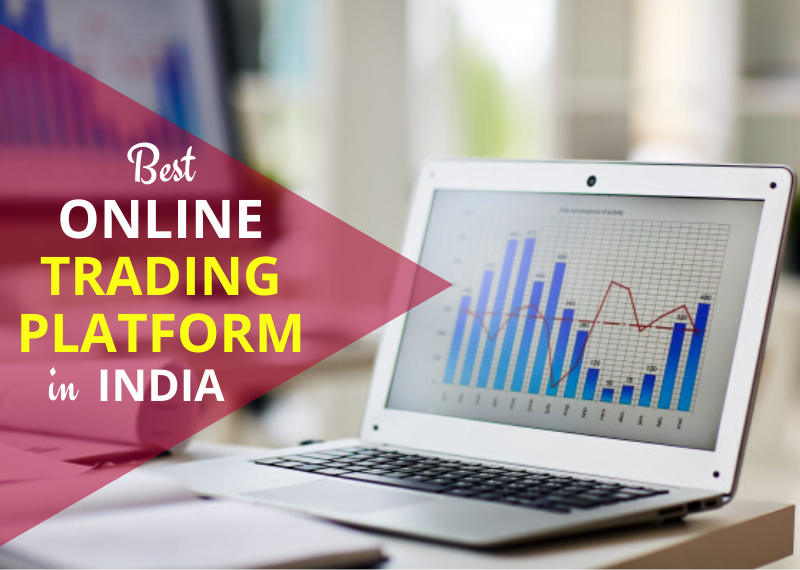Unleashing the Potential of Online Trading Platforms

Online Trading Platforms: In an era of technological advancements, the world of financial trading has experienced a profound transformation. Traditional trading floors have given way to digital landscapes, where investors and traders can access global markets from the comfort of their homes. Welcome to the realm of online trading platforms – the catalysts that have democratized investment opportunities, reshaped trading dynamics, and empowered individuals to participate in the financial markets like never before.
The Evolution of Online Trading Platforms:
The journey of online trading platforms has been marked by continuous innovation and evolution. Starting with basic online brokerage accounts, these platforms have grown into sophisticated ecosystems that offer a plethora of features and tools for traders and investors. Today’s online trading platforms are a result of the fusion of financial expertise and cutting-edge technology, creating an environment that accommodates traders of all levels, from beginners to seasoned professionals.
The Advantages of Online Trading Platforms:
- Accessibility: Online trading platforms eliminate geographical barriers, enabling users to access markets across the globe 24/7. This accessibility opens up new horizons for investors and traders who can capitalize on opportunities from different time zones.
- Affordability: Traditional trading often came with hefty brokerage fees and high minimum investments. Online platforms have disrupted this norm by offering low-cost trading and reduced fees, making trading more affordable and inclusive.
- Educational Resources: Many online trading platforms provide a wealth of educational resources, including webinars, tutorials, and market insights. These resources empower traders to make informed decisions and enhance their trading skills.
- Real-Time Data: Online platforms offer real-time market data, charts, and news updates. This information enables traders to react swiftly to market movements and adjust their strategies accordingly.
- Diverse Asset Classes: Online trading platforms allow access to a wide range of asset classes, including stocks, forex, commodities, cryptocurrencies, and more. This diversity enables traders to diversify their portfolios and manage risk effectively.
- Automation and Algorithmic Trading: Some platforms offer automated trading features, allowing traders to execute predefined strategies without manual intervention. Algorithmic trading enhances precision and eliminates emotional bias.
Also Read This: A Comprehensive Guide to Understanding Different Types of Credit Cards
Key Features of Online Trading Platforms:
- User-Friendly Interfaces: Most online trading platforms prioritize user experience with intuitive interfaces designed for easy navigation and execution of trades.
- Customization: Traders can customize their trading dashboards, charts, and alerts according to their preferences and strategies.
- Technical Analysis Tools: Platforms offer an array of technical analysis tools, indicators, and charting capabilities to aid traders in making informed decisions.
- Risk Management: Effective risk management tools such as stop-loss orders and limit orders are integral components of online trading platforms.
- Social Trading: Some platforms incorporate social trading features that enable users to follow and replicate the trades of successful traders, enhancing learning opportunities.
- Mobile Applications: Mobile trading apps allow users to trade on-the-go, providing flexibility and convenience.
Selecting the Right Online Trading Platform:
Choosing the ideal online trading platform is a crucial decision that impacts your trading experience and success. Consider these factors:
- Regulation and Security: Opt for platforms regulated by reputable financial authorities to ensure the safety of your funds and personal information.
- Asset Offerings: Confirm that the platform offers the asset classes you are interested in trading.
- Fees and Commissions: Compare fees, spreads, and commissions to ensure they align with your budget.
- User Experience: A user-friendly interface and responsive customer support contribute to a positive trading experience.
- Educational Resources: Look for platforms that offer educational materials suitable for your skill level.
- Research Tools: Access to real-time data, technical analysis tools, and market insights are essential for effective trading.
The Future of Online Trading Platforms:
The trajectory of online trading platforms is one of continued growth and innovation. As technology evolves, we can expect enhanced automation, augmented reality trading environments, and further integration of artificial intelligence. These advancements will empower traders with even more sophisticated tools and insights, propelling the trading experience into new dimensions.
Final Thoughts:
Online trading platforms have ushered in an era of financial democratization, enabling individuals to engage with global markets on their terms. As technology evolves and platforms become more sophisticated, the power to control investments, manage risk, and capitalize on market opportunities has shifted into the hands of traders and investors. In this digital age, online trading platforms have truly transformed the landscape of financial markets, making the world of trading more accessible, dynamic, and exciting than ever before.




